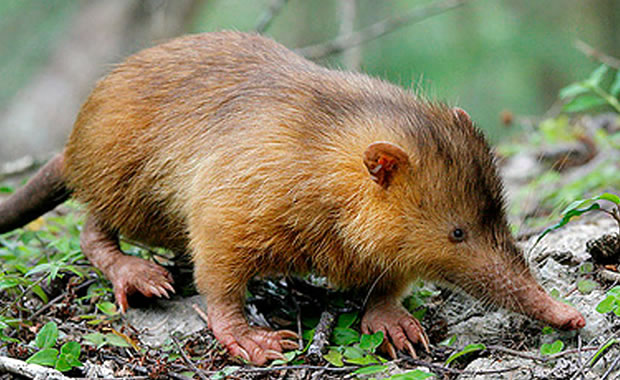
Creature Profile
The speartooth shark is a medium-sized whaler shark found in the tropical waters of the western Pacific Ocean. It is a requiem shark (live-bearing shark) with a broadly round snout and small eyes. It has a uniformily slate-gray surface and its underparts are white. Younger sharks have noticable marks, and the marks disappear as they age. Speartooth sharks have fewer teeth compared to other requiem sharks, with a total of 54 rows in both jaws. The teeth are very different in the lower and upper jaws. The upper teeth are tall, broad, flat, triangular and blade-like as its name suggests, and the lower teeth are narrow, tall, erect, and slightly hooked to straight cusps. It is estimated that adults can reach up to 9.84 feet in length.
The biology of this species is nearly uknown. It is known to occur in tidal rivers and estuaries, indicating that large tropical river systems appear to be the primary habitat. Speartooth sharks are viviparous, meaning they give birth to fully developed live young. Diet consists primarily of fish such as prawns, gobies, gudgeons, jewfish, and bream.
The main threat to the speartooth shark is hunting and habitat degradation. Some are accidently caught by fishermen, and therefore eaten or left to die. The speartooth shark is protected under the Environment Protection and Biodiversity Converstion Act of 1999. Also, some speartooth sharks occur within the Kakadu National Park, a protected area that appears to be a safe habitat for the species.
Wikipedia Article

|
Wikipedia Article Copyright Notice: This article is licensed under the GNU Free Documentation License. It uses material from the Wikipedia article "Speartooth shark". |
April 30, 2017
Glenn, C. R. 2006. "Earth's Endangered Creatures - Speartooth Shark Facts" (Online). Accessed 4/20/2024 at http://earthsendangered.com/profile.asp?sp=1652&ID=4.
Need more Speartooth Shark facts?



